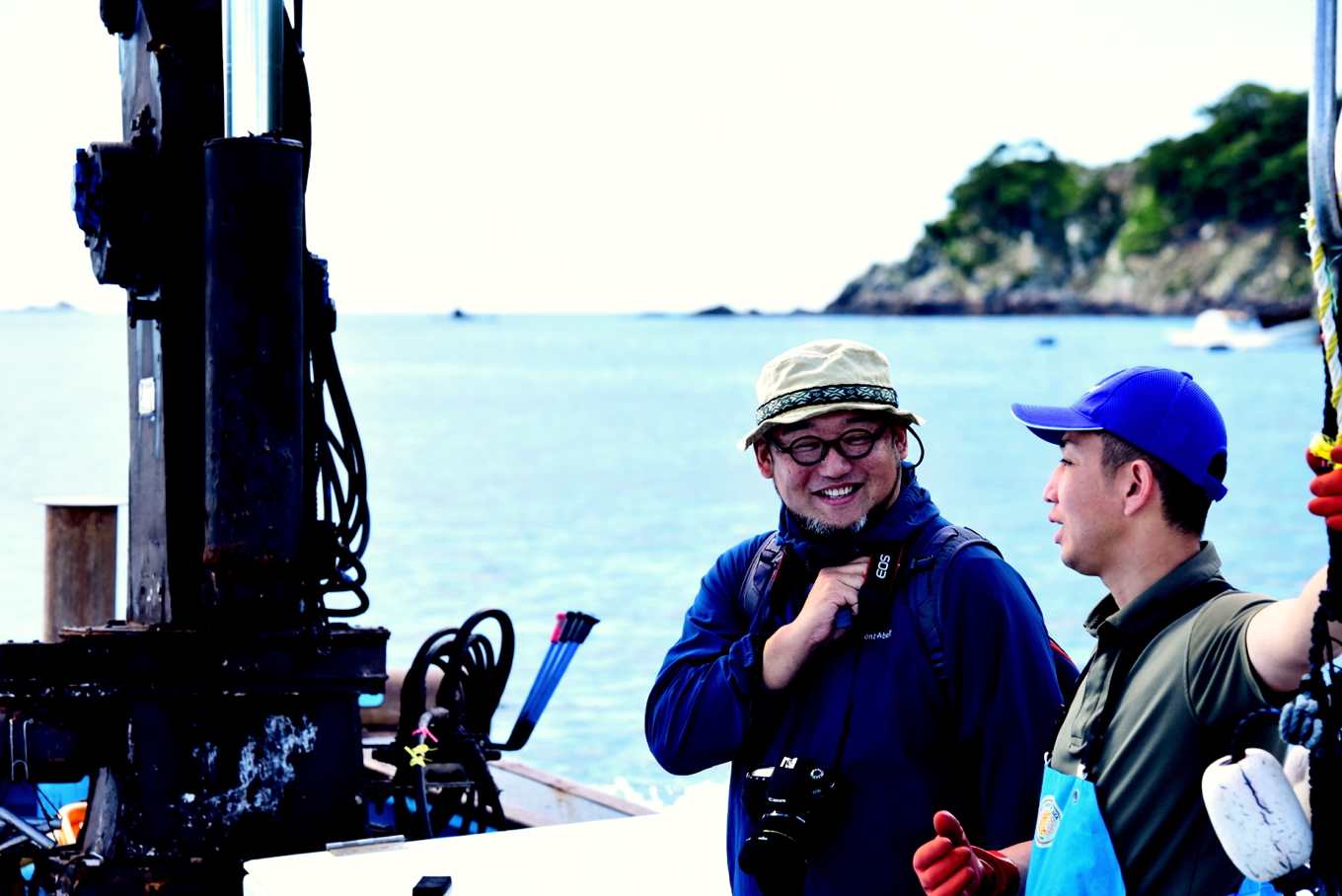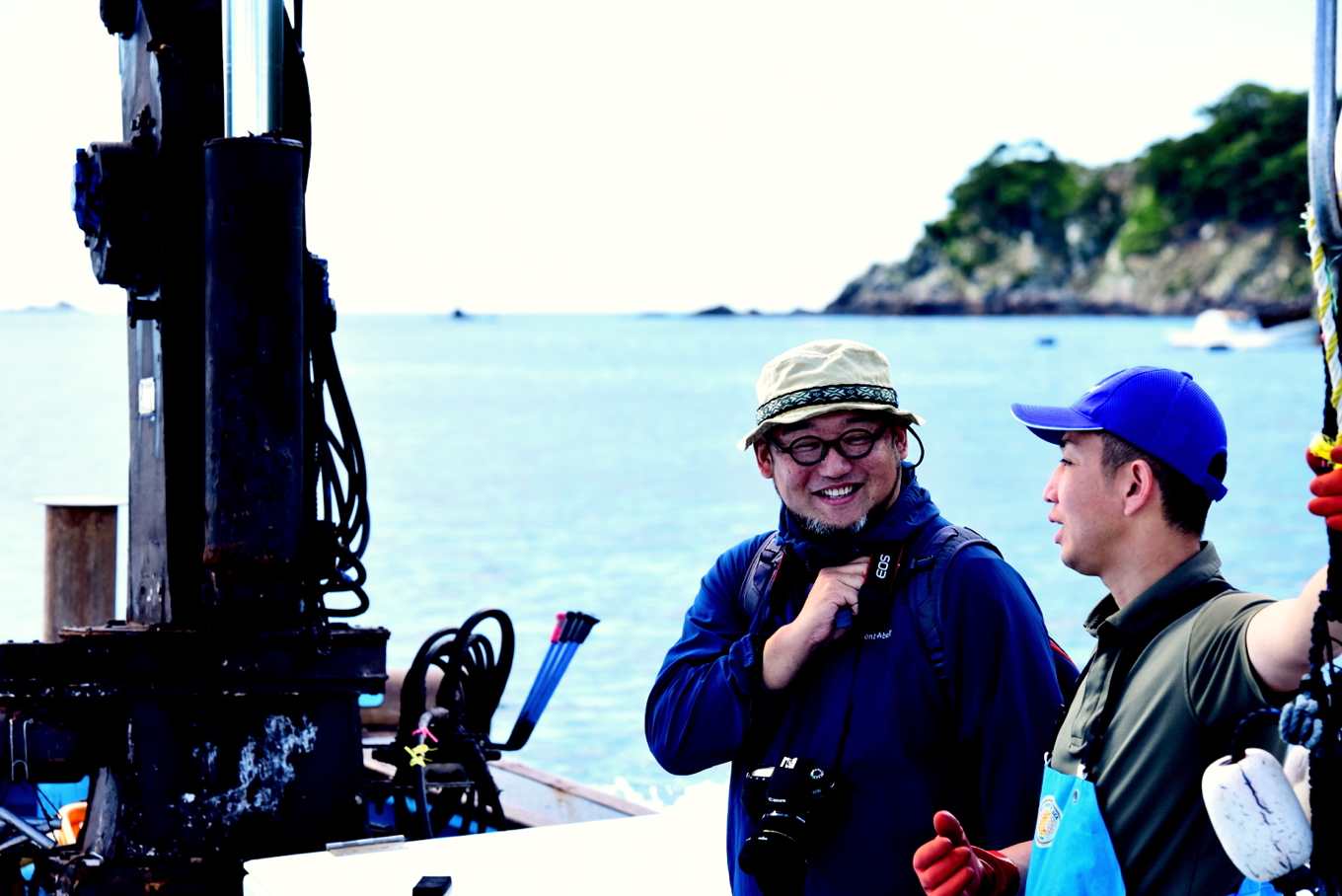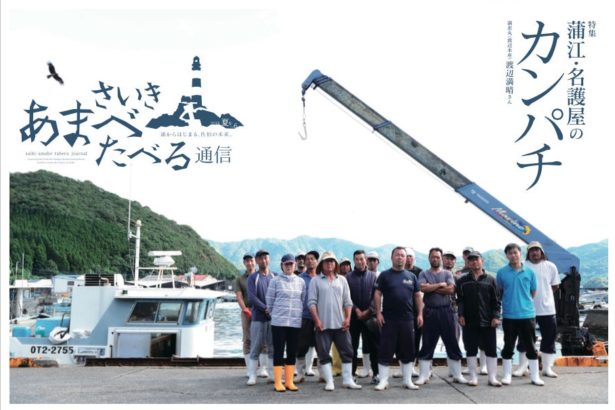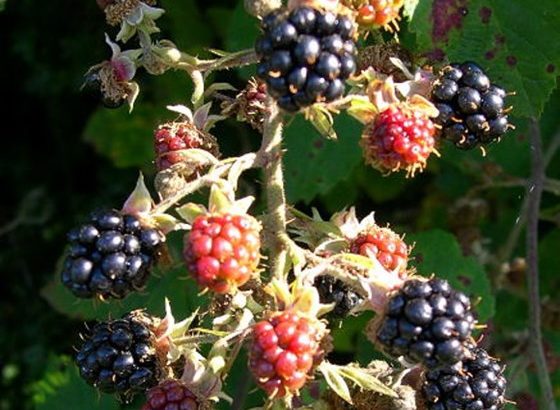An interview with ─ Hirakawa, editor-in-chief of │ "Zobu Haibu Communication" in Zobo's aquatic processing industry.
0 sharing
(following the previous article) Hirakawa Osamu represents the president of Hirakawa Co., Ltd. Born in 1969. After graduating from university, he joined Recruit (now known as Recruit Holdings) and experienced the duties of business, production, interview, commodity planning, business manager and so on. Return to Zobo City in 2012. On the one hand, it runs a fish processing and selling company, and on the other hand, it founded Zob Haibu Food Communications in April 2017.
Start with "depict Zopper's future from the ocean." As the core idea. Shine on the enthusiasm of fishermen and aquaculture processors along the coast of Zobo. The goal is to show everyone the value of the modern version of "living by the sea under the temple of Zoe". Zobo Haibu's business of communication and communication has also been recognized by the Oita County Management character Plan. The following is the second part of an exclusive interview with Hirakawa. Please click here to read the previous article.


Q: if you want to cut in from the perspective of level 1.5 industry and level 2 industry, I think this is the unique entry point for Mr. Hirakawa's discerning eye.
I have always had a simple question: "is it solved by connecting the producers and consumers of the primary industry?" Because there are also people doing things in the primary and secondary industries, but now people do not correctly understand the connotation of "processing" between the two ends of production and consumption and the significance of its existence. That's why I want to tell you these things through 'Zoe Haibu Newsletter'.
As I began to get involved in the field of "food", I always felt that what I wanted to do was not just to shorten the distance between people and producers or ingredients. For example, some people will pay attention to the fact that although the vegetables sold directly from the place of origin look fresh, these people will still worry about whether they are safe. When you think about it that way, you've already closed the problem.
Spraying pesticides is not entirely a bad thing. The important thing is whether farmers have a good understanding of how these pesticides are applied. Even in pesticide-free cultivation, it doesn't make sense in the end if your soil is not managed properly. There are too many things that consumers can make wrong judgments where we can't see them. Therefore, I think that in considering the peace of mind and safety of food, we need a person with the ability to identify to make a judgment.
■ wants to question the relationship between "producers" and "consumers" from the scene of the processing industry.
Q: do you want to raise your doubts about the whole process of delivering food from the processing industry to consumers?
There is also the meaning of this layer. For example, there was a producer in a primary industry who began to sell his own ingredients directly to consumers. This is a good thing in itself, but the producer wrote on his website that we were able to offer such a cheap price because we skipped those companies who bought raw materials cheaply and resold them. I was hit very hard after I saw it.
If you skip the people in the middle, you will rule out all their values, including the processing industry, and so on, in the middle of production and consumption. I think it is the mission of us processors to do a good job of processing what producers provide and create proper channels to sell, and our trust relationship with it comes from. That is why I have doubts about these phenomena.
Q: from the standpoint of processors, it is only natural that there will be such doubts.
So what I intend to do is to rely on the "Zob Haibu Food Newsletter" to give consumers a choice. How does our food come from and how do we determine its price? After understanding the facts behind the food, tell consumers that you are the one who has to make a choice at the end. I hope to stimulate people to think about these things more.
Q: does that mean you want to make the "food resume" which includes processing, circulation and so on clearer?
Today's society pursues such values, and these things have gradually become the standard all over the world. This is especially true in the world of "food". The unique habits of Japan in the past are no longer common in the present era. The white kissing larvae sold in the supermarket are not as natural as they thought.
In this day and age, as long as a small shrimp is mixed with those kissing larvae, some people will complain that something strange has been mixed in. Before those little kissing larvae are processed and shipped to become super-merchant kissing larvae, it is necessary for someone to carefully use their hands to make sure that there are any small shrimps or squid inside, and finally you will see the kissing larvae for nothing.
■, in the special series of Golden sardines and Tiger globefish reported by Mr. Hirakawa earlier, he also interviewed people related to the processing of these ingredients and introduced these processes in detail.
If we do not write about the persistence and enthusiasm that drives these producers from upstream to downstream, there is no way to understand the value behind these people. Through the stories behind the processed products that we do not know, our view of these practical information will also change. I think that's what's important.
■, this is something only Mr. Hirakawa can tell you.
For example, we can also tell you, why do you have to make special efforts to process some ingredients that can be eaten directly? This will be related to the food culture and history of the place. For example, since the Edo period, sardines were very popular in the coastal areas known as "Haibu" at that time. Dried fish made from processed sardines and fish oil were a huge source of income for Zobofan, so there was a common saying in history: "under the temple of Zob, the sea is for a living."
In the past, fresh foods such as fish could only be consumed in neighboring areas, but through advances in logistics and processing technology, these ingredients could be transported to distant places for sale. It is precisely because of the addition of "human" elements to the industry and food culture of this land, the product of each other produces value.
■ can even do a special episode of "cutting Bamboo Pod Fish" ten times.
Q: so do you have any experience for those who want to start the magazine?
Romance (the intensity of belief) and abacus (business) have to be both. My words are because the "Katariba" event went to the northeast and met a seemingly clumsy but enthusiastic man like Hiroshi Takahashi. Everything that has been done since then has started since then.
With this heat, there will be a way to tell no matter how it starts. If you want to do it, try to put your hand up first. There are so many partners in Japan. Especially if someone wants to do a new food communication in Kyushu, I will be very happy. Kyushu's food communication partners held a book reading meeting and a study trip together. Let like-minded people have the opportunity to learn from each other.
After that, the sprint at the starting point is very important. How many readers you can try to recruit on the inaugural issue. Although "Food Communications" has strong ideals and what it wants to say, it can only be achieved by readers who are willing to read it. Therefore, it is necessary to increase the number of people to be touched at the beginning.
What on earth is the purpose of "food communication"? If we do not create enough people to be willing to buy this publication, I think it will be very impolite for the person we are interviewing. "Food Communications" is not a media that ends after it is collected and edited, or after readers have finished reading it. If you think of it as a voluntary career, then don't charge it and give it to everyone for free.
Q: what needs to be done to keep this publication going?
At that time, when I was giving a pre-publication report at the Food Communications Union Conference, General Taitian, editor-in-chief of Dongsong Island Food Communications, called me, saying, "since you are small towns, then you can do a special episode of bamboo pod fish in a row."
After hearing this, I suddenly relieved a lot. Even if they are all dried bamboo pods and fish, as long as the people who make them are different, the beliefs and stories put in by the producers will be different. "I see. This is also a way to do so." Understanding this, in fact, I also bought several dried bamboo pods to eat, and each one tasted differently.
However, no matter how dreamy the industry is, it doesn't make any sense if it can't be sustained. Personally, I am very strict with numbers, and I actively contact local authorities and enterprises to cooperate. Through the interview of 'Zob Haibu Food Newsletter', new business opportunities will also arise, such as those entrusted with the hope of selling ingredients overseas. I also hope that what we do will not stop in the journal Food Communications.
■ hopes to be able to specifically describe the value of "like Zorb".
Q: for Mr. Hirakawa, what is the charm of "Food Communications"?
For me, the clairvoyance of "Food Communications" is that it can be an opportunity to change consumers' horizons. It is interesting to nurture new values from a variety of perspectives, including the construction of a relational population or the promotion of food farmer education. I think the strength of this media is in this place.
I often say to local people, "everyone says that Zobo's fish is delicious, but in fact, the fish caught all over the coast of Japan are also very delicious." So why is Zoe's fish delicious? If there is no way to explain this point in specific language, no one will come to us, Zopper. "
Even if the same kind of fish, depending on the location, "people" and "stories" will be different, how can we deepen the content? For me, I think "food communication" is a decisive way for us to describe the content in specific language.
I think the "delicious" thing is a collection of all kinds of feelings, so I also want to drive all kinds of "feelings".
What is the prospect of QRV's Zobu Haibu Communication in the future?
In the county, create a "field" where you can talk about diet. My dream is to be a vendor. Be able to bring producers to create an ideal future partner that can talk about "food communications" and large portions of diet together.
When I was in primary school, I would run to the beach with a fishing rod after class and fish there until the sun went down. The rich sea and coast are the value of our town. I don't want to abandon this part of Zob myself. No matter how much I want to shine on Zobo's aquaculture processing industry, and the people who are passionate about it.
Cherish the "people" and "stories" here, and how to make the value of "like Zob" be seen. In the future, we need to spend more time thinking about what belongs to the "Zorb" part.
Serial production and Marketing Co-operative ─ Local Minister of creation rewarded Hiroshi Takahashi, "Japan Food Communications"
[Nippon Communications] subscribed to the magazine with ingredients, and Nippon Food Communications joined the production and consumption community.
Read more long stories from the editor of Food Communications: https://taiwantaberume.wordpress.com/
- Prev

The Light of living on the Sea and processing an interview with ─ Hirakawa, Editor-in-Chief of │ "Zob Haibu Food Communications"
The Light of living on the Sea and processing an interview with ─ Hirakawa, Editor-in-Chief of │ "Zob Haibu Food Communications"
- Next

A small farmer in England / first ploughing, first fatigue
A small farmer in England / first ploughing, first fatigue
Related
- A course of planting techniques and methods on how to grow carrots
- How to plant the latest tulips?
- Is it better to pick tea in the morning or in the afternoon? When is the best time for tea to be picked? what is the third or fifth tea?
- Launch Yuanxiao Happy combination Haocha + Tea Yuan healthy Taste
- Penghu Tourism "Fireworks 20 Parade with You"
- 2022 West Lake Happiness holds "Digital Revitalization Voucher" and draws iphone13 and laptop.
- Banqiao Fuzhou social houses are designed to change start-up combined with police elimination to create a safe and livable environment
- The convenient measure of "mechanical weeding" in Xinbei has been abused and the Agriculture Bureau has imposed heavy penalties on the illegal land consolidation.
- Changgeng University Joins Hands with Four Memory Factories to Rescue Memory Talent Shortage
- The list of Taiwan's top 100 MVP managers is listed by the Director-General of the Farmers' Association of Sanxia District.

